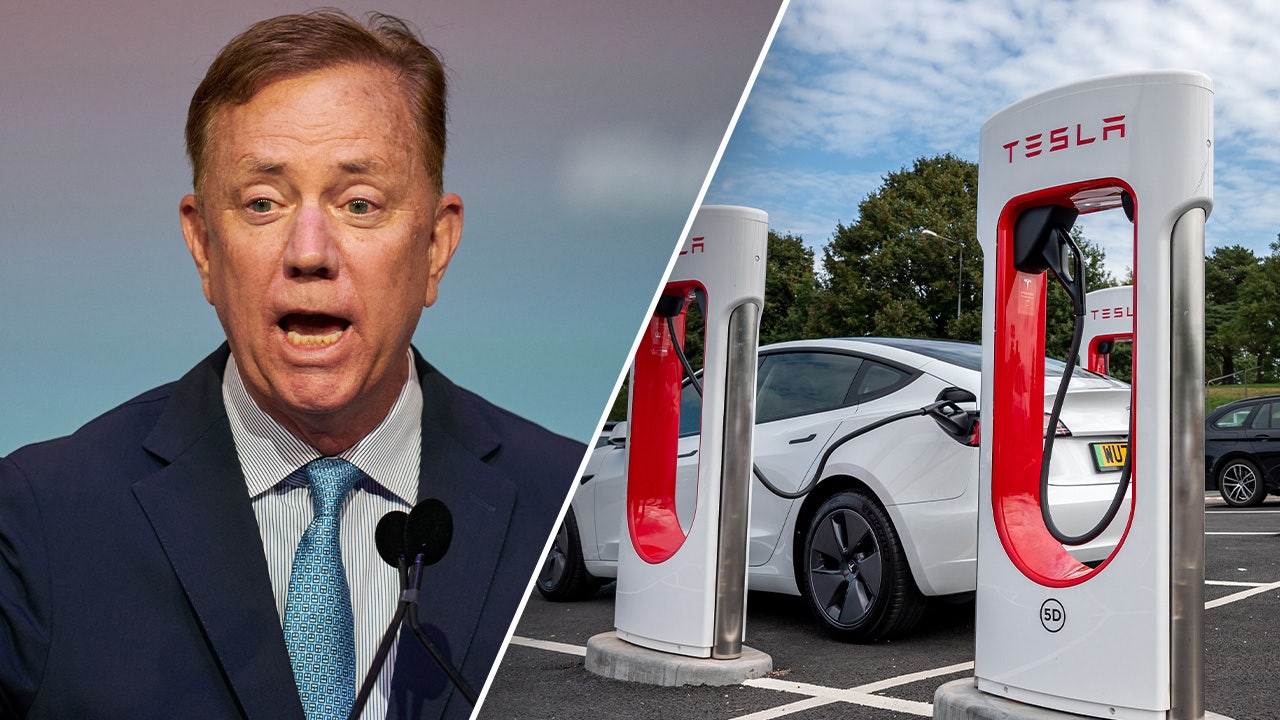Auto Dealers Intensify Opposition To Mandatory Electric Vehicle Quotas

Table of Contents
Financial Concerns Driving Dealer Opposition to EV Quotas
The transition to EVs presents significant financial challenges for auto dealers, fueling their opposition to mandatory quotas. These challenges stem from substantial upfront investments, uncertainty about profitability, and complex inventory management issues.
High Upfront Investment Costs for EV Infrastructure
Dealerships face considerable expenses in adapting to the EV market. This includes:
- Charging infrastructure: Installing and maintaining EV charging stations requires significant capital investment, particularly for larger dealerships or those in areas with limited existing infrastructure.
- Specialized training: Staff require training on EV technology, maintenance, and sales, adding to operational costs.
- Showroom renovations: Showrooms may need renovations to accommodate EV displays and charging stations, impacting existing layouts and potentially requiring significant construction work.
These costs disproportionately affect smaller dealerships, especially those located in areas with lower projected EV demand, making the transition particularly risky without sufficient government support. The lack of readily available, affordable government grants or subsidies for these upgrades exacerbates the financial burden.
Uncertainty Surrounding EV Profitability
A major concern for dealers is the lower profit margin often associated with EVs compared to gasoline-powered vehicles.
- Reduced profit margins: Lower sales prices and higher initial investment costs can significantly reduce profit margins on EV sales.
- Impact on overall profitability: The forced sale of a larger quota of EVs could negatively impact the overall profitability of dealerships, threatening their financial stability.
- Unpredictable future: The volatile nature of EV sales, along with fluctuating government incentives and subsidies, creates significant uncertainty regarding future profitability.
Inventory Management Challenges
Balancing EV and gasoline vehicle inventory presents substantial logistical challenges.
- Demand forecasting difficulties: Accurately predicting EV demand is challenging due to the relatively nascent market and evolving consumer preferences. This can lead to overstocking or shortages, both of which impact profitability.
- Specialized storage: Storing and handling EVs might require specialized facilities, adding to operational costs and logistical complexity.
- Used EV market: The growing used EV market poses additional challenges related to valuation, maintenance, and resale.
Concerns Regarding Consumer Demand and Market Readiness for EV Quotas
Even beyond financial hurdles, auto dealers express serious concerns about the current market readiness for mandatory EV quotas. These concerns center around limited consumer adoption, the impact on the used car market, and the need for improved consumer education.
Limited Consumer Adoption in Certain Regions
Consumer readiness for EVs varies significantly across geographical regions.
- Regional disparities: Adoption rates are influenced by factors such as infrastructure availability (charging stations), purchasing power, and consumer awareness.
- Unsold inventory: Imposing quotas in regions with low consumer demand could lead to unsold EVs and substantial losses for dealers.
- Addressing consumer concerns: Addressing range anxiety, charging infrastructure limitations, and price sensitivity remains crucial for fostering wider EV adoption.
The Impact on Used Car Markets
The influx of used EVs could negatively affect the used car market.
- Depressed prices: A large supply of used EVs could depress prices, impacting the profitability of dealerships' used car sales.
- Lack of expertise: Dealers may lack the necessary expertise and infrastructure to effectively service and resell used EVs.
Lack of Consumer Education on EV Technology and Benefits
Many consumers remain unsure about the benefits and intricacies of EV technology.
- Knowledge gap: A lack of awareness about EVs' advantages, charging processes, and maintenance requirements hinders wider adoption.
- Need for education: Targeted consumer education campaigns are essential to address misconceptions and promote wider EV acceptance.
The Political and Regulatory Landscape of Mandatory EV Quotas
The debate surrounding mandatory EV quotas is deeply intertwined with political lobbying, regulatory challenges, and the role of auto manufacturers.
The Lobbying Efforts of Auto Dealer Associations
Auto dealer associations are actively lobbying against mandatory quotas, emphasizing the financial and logistical challenges they pose.
- Advocating for alternatives: They are pushing for alternative approaches, such as tax incentives and comprehensive consumer education programs, to promote EV adoption.
The Debate Surrounding Government Intervention in the Automotive Market
The effectiveness and fairness of government mandates are under intense scrutiny.
- Unintended consequences: Concerns exist about potential market distortions and unintended negative consequences resulting from heavy-handed government intervention.
The Role of Manufacturers in Navigating These Quotas
Auto manufacturers also face challenges in meeting mandated quotas.
- Production capacity: Scaling up EV production to meet quotas requires significant investment and technological advancements.
Conclusion
The intensified opposition to mandatory electric vehicle quotas by auto dealers highlights genuine concerns regarding financial viability, consumer demand, and market readiness. While the transition to EVs is essential for environmental sustainability, a balanced approach is crucial for a smooth and successful transition. This requires addressing dealer concerns through targeted support programs, improved consumer education, and a more flexible regulatory framework. Failing to engage constructively with auto dealers' concerns risks undermining the long-term success of electric vehicle adoption and could hinder the overall goal of a greener automotive future. Let's find a path forward that effectively addresses the concerns surrounding mandatory electric vehicle quotas and fosters a sustainable and thriving EV market.

Featured Posts
-
 Michigan Coffee Drinkers Urgent Recall Of Potentially Deadly Creamer
May 14, 2025
Michigan Coffee Drinkers Urgent Recall Of Potentially Deadly Creamer
May 14, 2025 -
 Chelsea And Tottenham Face Bellinghams Price Tag
May 14, 2025
Chelsea And Tottenham Face Bellinghams Price Tag
May 14, 2025 -
 Captain America Brave New World The Absence Of A Pivotal Figure And Its Mcu Ramifications
May 14, 2025
Captain America Brave New World The Absence Of A Pivotal Figure And Its Mcu Ramifications
May 14, 2025 -
 Ct Vyloucila Novinare Deniku N A Seznam Zprav Z Brifinku
May 14, 2025
Ct Vyloucila Novinare Deniku N A Seznam Zprav Z Brifinku
May 14, 2025 -
 Igloo Cooler Recall Walmart Nationwide Alert For Potential Fingertip Injuries
May 14, 2025
Igloo Cooler Recall Walmart Nationwide Alert For Potential Fingertip Injuries
May 14, 2025
Latest Posts
-
 The Rise Of Cross National Artists In Eurovision
May 14, 2025
The Rise Of Cross National Artists In Eurovision
May 14, 2025 -
 Can Basel Deliver A Diverse And Inclusive Eurovision Despite Tensions
May 14, 2025
Can Basel Deliver A Diverse And Inclusive Eurovision Despite Tensions
May 14, 2025 -
 Diversity And Inclusion At The Forefront Of Basels Eurovision Bid
May 14, 2025
Diversity And Inclusion At The Forefront Of Basels Eurovision Bid
May 14, 2025 -
 Basels Eurovision Hope Navigating Tensions With A Focus On Diversity
May 14, 2025
Basels Eurovision Hope Navigating Tensions With A Focus On Diversity
May 14, 2025 -
 Eurovision 2024 In Basel Promoting Diversity And Inclusion Amidst Tensions
May 14, 2025
Eurovision 2024 In Basel Promoting Diversity And Inclusion Amidst Tensions
May 14, 2025
